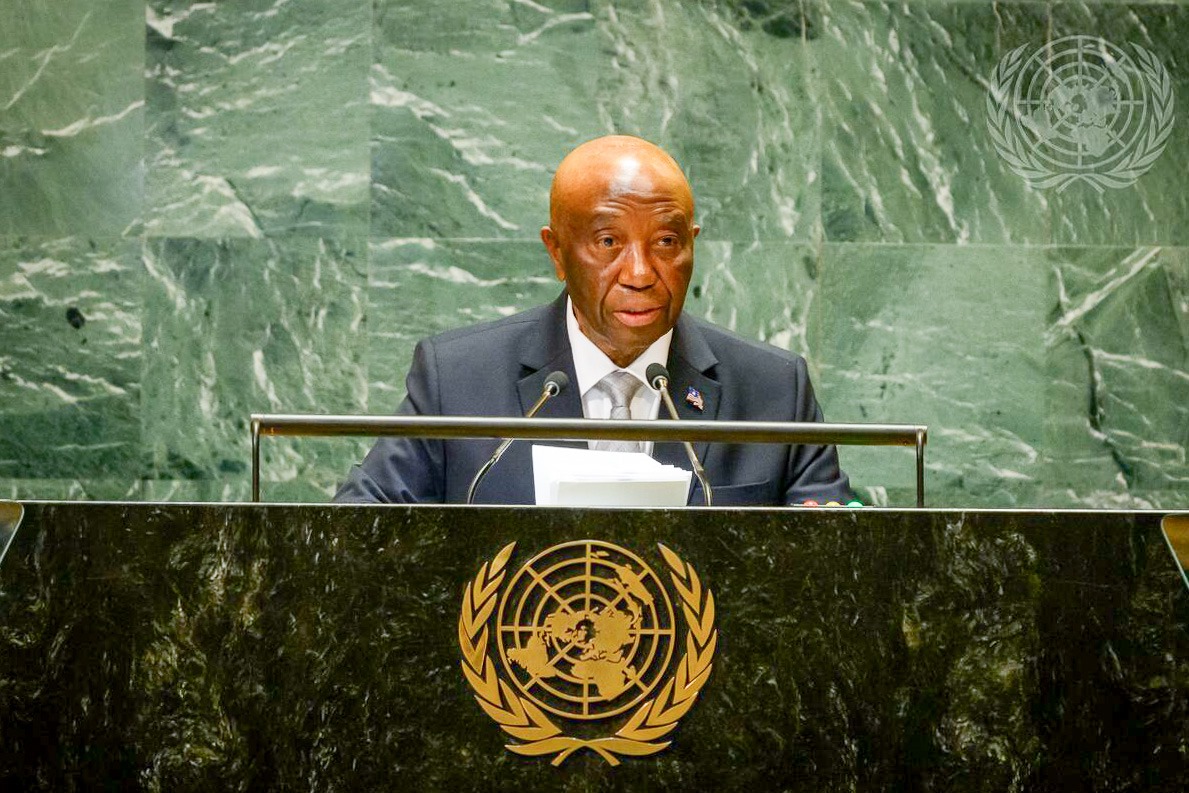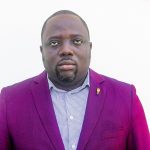New York, September 25, 2024 – While addressing the 79th United Nations General Assembly in New York, President Joseph Nyuma Boakai of Liberia presented a hopeful narrative of Liberia’s progress and its commitments to global development and peace. However, back home, the realities paint a starkly different picture, where Boakai’s administration faces mounting criticism over its failure to effectively tackle corruption, foster reconciliation, and promote national unity.
Anti-Corruption Promises Fall Short
One of the most glaring critiques of President Boakai’s leadership has been his administration’s approach to anti-corruption efforts. During his speech at the UNGA, Boakai reaffirmed Liberia’s commitment to transparency and accountability, highlighting the role of the General Auditing Commission in restoring public confidence. However, critics argue that these words have not translated into meaningful action on the ground.
Numerous reports point to a failure to hold key officials accountable for financial mismanagement, with audits often left unaddressed and recommendations ignored.
President Joseph Boakai has faced growing criticism for his failure to take decisive action against his Chief of Office Staff, Sylvester Grigsby, amid serious corruption allegations. Grigsby has been accused of improperly directing NASSCORP (National Social Security and Welfare Corporation) to purchase five luxury SUVs for political use before officially assuming office. The vehicles, which were allegedly bought with public pension funds, have sparked outrage due to Liberia’s ongoing economic struggles and the importance of NASSCORP’s funds for pensioners’ welfare.
The controversy deepened with further allegations of misuse of resources, yet President Boakai has remained silent, failing to address the situation publicly or initiate any formal investigation into Grigsby’s actions. This has raised concerns about the administration’s commitment to its anti-corruption promises. Critics argue that Boakai’s inaction undermines his campaign pledge to combat corruption and promote transparency. His refusal to reprimand Grigsby, along with a separate controversy involving his Minister of Commerce, Amin Modad, over luxury vehicle procurement, has only intensified these concerns.
Such failures risk eroding public trust and emboldening corrupt practices within the government, calling into question the integrity of Boakai’s leadership on critical governance issues.
Reconciliation and Justice: A Promise Deferred?
While President Boakai highlighted the establishment of a dedicated office to create War and Economic Crimes Courts as part of Liberia’s transitional justice process, many Liberians argue that his administration has done too little, too late. More than two decades after the end of Liberia’s civil war, victims and survivors are still waiting for justice.
Boakai’s government signed Executive Order 131 in May 2024, but critics contend that it was largely a symbolic gesture without a clear plan for implementation. For many, the delay in setting up the courts signals a lack of genuine political will to address past atrocities. Some have even suggested that the president is reluctant to proceed with these courts due to concerns about implicating powerful political figures and former warlords who still hold significant influence in the country.
“Boakai speaks of national reconciliation, but you cannot have true reconciliation without justice,” said a representative from the Global Justice and Reconciliation Network in Monrovia. “The president’s hesitation to fully commit to the establishment of the War and Economic Crimes Courts is a betrayal to the thousands of Liberians who suffered during the civil conflict. We need more than just executive orders; we need action.”
National Unity: A Divided Landscape
In his UNGA speech, President Boakai expressed pride in Liberia’s peaceful transitions of power and democratic gains over the past two decades. However, beneath this veneer of stability, the country remains deeply divided along political, ethnic, and regional lines. Many argue that the president has done little to address the growing tensions that threaten Liberia’s fragile unity.
The administration’s failure to promote inclusive governance has only widened the divide, with certain regions and groups feeling marginalized by the national government. This lack of cohesion has been particularly evident in the president’s inability to unite the youth, who make up 60% of Liberia’s population, and who have been largely excluded from key decision-making processes.
“The president speaks of unity, but many of us feel excluded from the development process,” says Esther Gonda, a young activist from Nimba County. “Youth unemployment is at an all-time high, and the government’s ARREST Agenda has done little to address the structural inequalities that keep young people in poverty.”
Additionally, critics argue that President Boakai’s administration has failed to adequately address the root causes of the 14-year civil war, which continue to simmer beneath the surface. Issues such as land disputes, ethnic divisions, and political disenfranchisement have not been meaningfully tackled, leaving the door open to future instability.
Calls for Accountability Grow Louder
As Liberia approaches the midpoint of President Boakai’s first term, there is a growing sense of frustration among the public and civil society groups. Many are calling for a stronger commitment to fighting corruption, delivering justice, and promoting genuine national unity.
“The international community might be impressed with Liberia’s peaceful elections and the president’s diplomatic speeches, but Liberians want more than rhetoric,” says James Karpeh, a political analyst in Monrovia. “We need concrete steps towards addressing corruption, justice for war victims, and true national reconciliation.”
Without significant changes, critics warn that the Boakai administration risks losing the trust of the Liberian people and undermining the democratic gains made in the post-war era. For many, the time for talk has passed—what Liberia needs now is decisive action to secure a future of accountability, justice, and unity.
Liberian-born Emmanuel Orlind Cooper is an accomplished multimedia journalist with extensive experience covering news and stories on a variety of media platforms. Orlind's work frequently demonstrates his profound grasp of the region and its complexity, given his Liberian heritage.
Now residing in Woodbridge, Virginia, he keeps connecting with readers across continents with his perceptive journalism and sharing his viewpoint. He is well-respected in the sector because of his unwavering commitment to honesty and morality, which sets him apart in the field.
Orlind's work is more than simply his job; it's a dedication to giving voice to the voiceless, illuminating unsung tales, and advancing the worldwide conversation on important concerns. His goal as a journalist is to use the media's power to change the world, not just to disseminate information. He is a key player in modern journalism because of the inspiration, education, and engagement that his work consistently provides.


